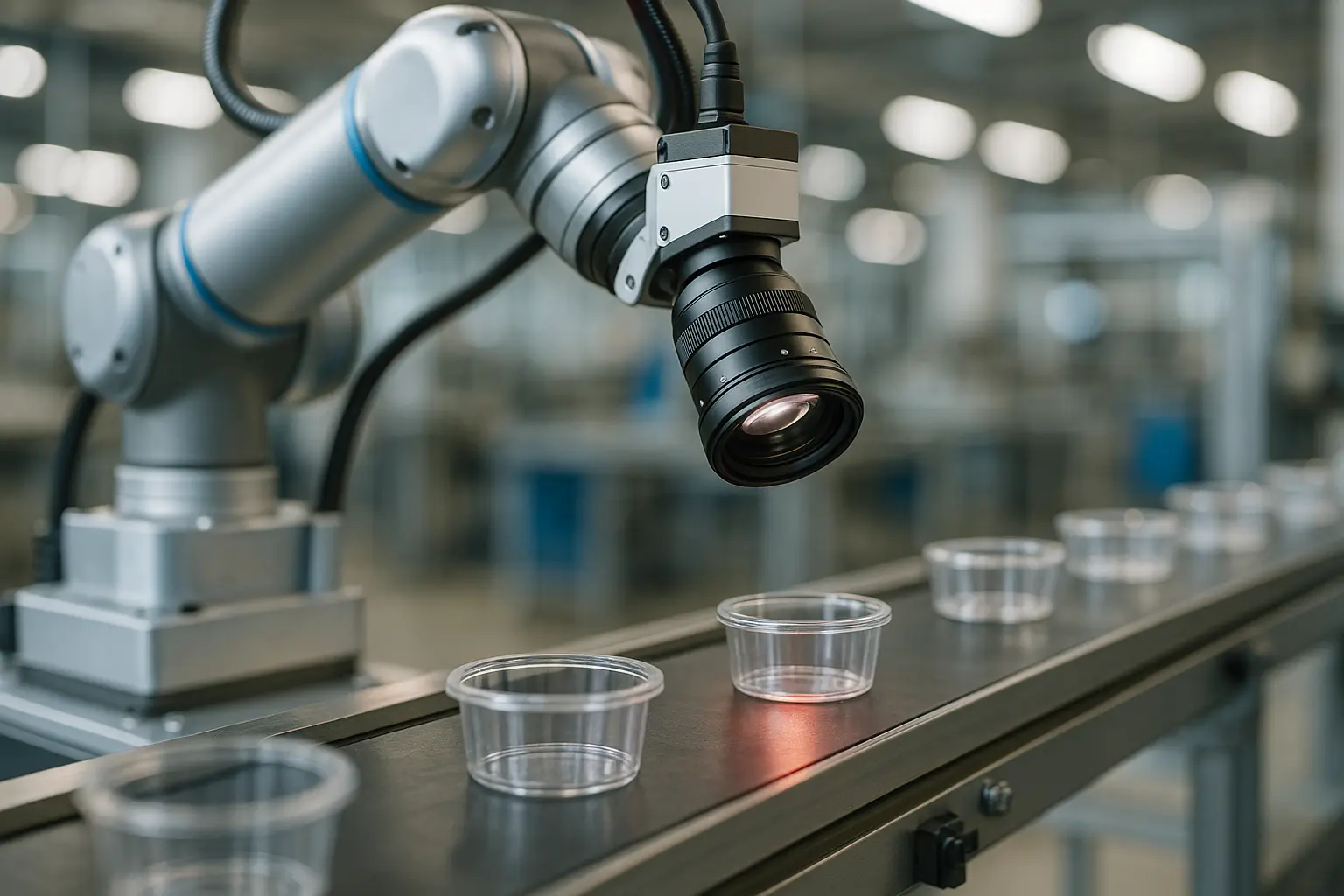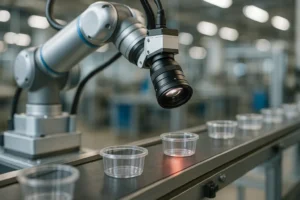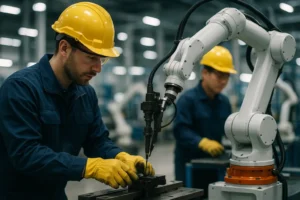How AI Helps Improve Product Quality
Artificial Intelligence (AI) has rapidly transformed the landscape of manufacturing and production, driving unprecedented advancements in product quality. In a world where customers demand excellence, the integration of AI into production processes ensures that manufacturers stay ahead of the curve. We delve into the ways AI enhances quality management and showcases its role in creating top-tier products.
Harnessing AI in Manufacturing Processes
As manufacturers, our quest for efficiency and excellence finds a formidable ally in AI. From the sparkle of automation to the robustness of data-driven decision-making, AI acts as a cornerstone in bolstering product quality. Let’s explore how AI reshapes the manufacturing landscape.
AI’s role begins with quality control and process optimization. Through real-time monitoring, AI systems analyze intricate data patterns, identifying anomalies in the production line. This proactive approach allows manufacturers to address potential defects before they escalate, ensuring consistent product quality.
Moreover, AI aids in predicting machine failures. By analyzing historical data and current conditions, AI models forecast machinery breakdowns, averting costly downtimes. This not only enhances productive capacity but also maintains product consistency.
Automation, another hallmark of AI, simplifies manufacturing processes. Automated systems reduce human error, guaranteeing precision and uniformity. With AI, the assembly line becomes a symphony of automation, where each component plays its part with unerring accuracy.
Ultimately, AI-driven innovations empower manufacturers to design products that exceed customer expectations. By integrating AI, we ensure that our products are not just built but crafted with an eye for quality and a commitment to excellence.
The Customer-Centric Approach: AI in Product Development
Product development isn’t merely about crafting items—it’s about creating solutions that resonate with customers. AI facilitates a customer-centric approach in product design, ensuring that each product aligns perfectly with customer needs.
Through data analysis, AI provides invaluable insights into customer preferences and behaviors, enabling manufacturers to tailor products that meet market demands. From trend analysis to sentiment evaluation, AI helps us understand the nuances of consumer desires.
AI-powered systems also augment the design process. By simulating various design scenarios, AI enables designers to experiment without tangible resource expenditure. This fosters creativity and innovation, allowing us to invent products that are not only functional but also captivating in design.
In addition, AI assists in real-time customer feedback integration. As products reach consumers, AI systems collect and process feedback, offering actionable insights for continuous improvement. This real-time loop ensures that our products evolve with customer expectations, reinforcing their trust in our brand.
By harnessing AI in product development, we make informed decisions that resonate with our audience, delivering products that are as purposeful as they are high-quality.

AI and Efficiency: Redefining Production Systems
In the dynamic world of manufacturing, efficiency is synonymous with success. AI redefines production systems, ensuring that every phase operates at peak potential, drastically improving both quality and output.
AI-driven systems streamline production by optimizing resource allocation. By analyzing production schedules, AI ensures that equipment and labor are utilized to their fullest, minimizing waste and maximizing efficiency. This results in a seamless workflow where quality is never compromised for speed.
Predictive analytics, powered by AI, takes the guesswork out of inventory management. By forecasting demand and supply trends, AI ensures that manufacturers maintain optimal inventory levels, preventing both overproduction and shortages. This balance is crucial for maintaining product quality and satisfying customer demand.
AI also enhances process efficiency through automation. Routine tasks that once required manual intervention are now managed by intelligent systems, freeing human resources for more strategic roles. This shift not only boosts productivity but also ensures a consistent quality of output.
In redefining production systems, AI empowers us to achieve unattainable levels of efficiency, ensuring that our operations are as streamlined as they are effective.
Conclusion: Crafting Quality with AI at the Helm
As we traverse the digital age, the importance of AI in shaping product quality cannot be overstated. It stands as a beacon of innovation, guiding manufacturers toward a future where quality isn’t just a goal—it’s a guarantee.
Through intelligent systems and data-driven strategies, AI has revolutionized how we approach manufacturing and product development. It allows us to anticipate challenges and seize opportunities, ensuring that our products remain competitive in an ever-evolving market.
As manufacturers, we embrace AI not as a tool but as a partner. Together, we navigate the complexities of modern production, crafting products that embody excellence and resonate with our customers. With AI at the helm, the future of product quality is not just bright—it’s brilliant.
FAQ
How can artificial intelligence enhance the overall quality of products?
AI can improve product quality by analyzing large datasets to identify patterns and anomalies that may indicate quality issues, leading to more precise quality control and process optimization.
What role does AI play in automated quality inspections?
AI powers automated quality inspections by using machine learning algorithms and computer vision to detect defects and irregularities in products, often with greater accuracy and speed than human inspectors.
Can AI help in predicting product defects before they occur?
Yes, AI can predict potential product defects by analyzing historical data and identifying trends that precede quality issues, allowing manufacturers to take preventive measures.
How does AI contribute to reducing product recalls?
By providing insights into quality control processes and detecting defects early, AI reduces the likelihood of defective products reaching the market, thereby minimizing the risk of product recalls.
What are the advantages of using AI over traditional quality control methods?
AI offers several advantages over traditional methods, including higher accuracy, faster processing times, the ability to analyze complex datasets, and the potential to operate continuously without fatigue.













